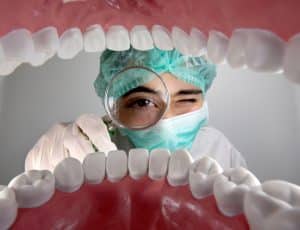If you’ve ever had one or more cavities, then you may remember how unpleasant they can be. As one of the more debilitating chronic aches and pains, tooth sensitivity (a common symptom of cavities) can often feel like an emergency when it sets in. In fact, over 25% of working adults admit to having taken time off of work to handle a toothache. Although tooth decay is a widespread disease that affects nearly 90% of adults in at least one permanent tooth, cavities and their resulting discomfort are highly treatable and, more importantly, preventable.
Things About Tooth Decay & Cavities
- Were you told as a child not to eat too much candy or you’ll get cavities? Contrary to popular belief, sugar does not directly cause tooth decay, but it feeds the oral bacteria that initiate the process. Particularly, Streptococcus mutans, a major contributor to dental plaque, consumes sugar and other carbs and metabolizes them into acid, which attacks your tooth’s protective outer layer of enamel.
- This first stage of decay, called acid erosion, can usually be reversed if caught before the enamel is structurally compromised. Fluoride treatments can help strengthen your tooth enamel, while an improved oral hygiene routine can limit the amount of acid-producing bacteria in your mouth and minimize the acid attacks. If left unchecked, however, small holes will form in your enamel that can allow bacteria access to the main structure, called dentin, and begin the infection known as tooth decay.
- As the infection eats away at your tooth’s structure, called dentin, cavities (holes) can form and grow as time goes on, becoming increasingly worse and continuing to destroy your tooth until you actively treat it. If caught at the dentin, decay can usually be treated by removing it and replacing the infected tooth tissue with a manmade material, called a dental filling. When decay advances to your tooth’s nerves and blood vessels at the center, however, a root canal procedure may be required to save your tooth. In extreme cases, extraction may be necessary to prevent the infection from spreading to the supporting gums and jawbone.
Learn How to Prevent and Treat Cavities Successfully
Preventing a cavity is the best way to protect your smile, but if one forms, then timely treatment is the next best thing. To schedule your appointment, call Keelan Dental in Butler, PA, today at (724) 285-4153. Our Smile Certified experts happily serve patients from Butler, Cranberry Township, Mars, Pittsburgh, Butler County, and all surrounding communities.


